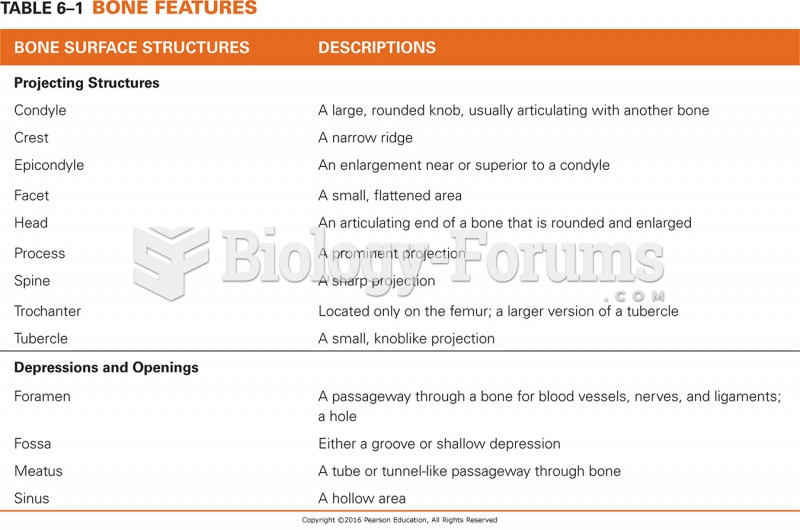|
|
|
Did you know?
There are over 65,000 known species of protozoa. About 10,000 species are parasitic.
Did you know?
The ratio of hydrogen atoms to oxygen in water (H2O) is 2:1.
Did you know?
Adolescents often feel clumsy during puberty because during this time of development, their hands and feet grow faster than their arms and legs do. The body is therefore out of proportion. One out of five adolescents actually experiences growing pains during this period.
Did you know?
Your chance of developing a kidney stone is 1 in 10. In recent years, approximately 3.7 million people in the United States were diagnosed with a kidney disease.
Did you know?
Aspirin may benefit 11 different cancers, including those of the colon, pancreas, lungs, prostate, breasts, and leukemia.
 Enzymatic features of DNA polymerase that account for its inability to copy one of the DNA strands a
Enzymatic features of DNA polymerase that account for its inability to copy one of the DNA strands a
 Two-handed kneading on the upper leg. Apply kneading to medial, posterior, and lateral muscles of ...
Two-handed kneading on the upper leg. Apply kneading to medial, posterior, and lateral muscles of ...





